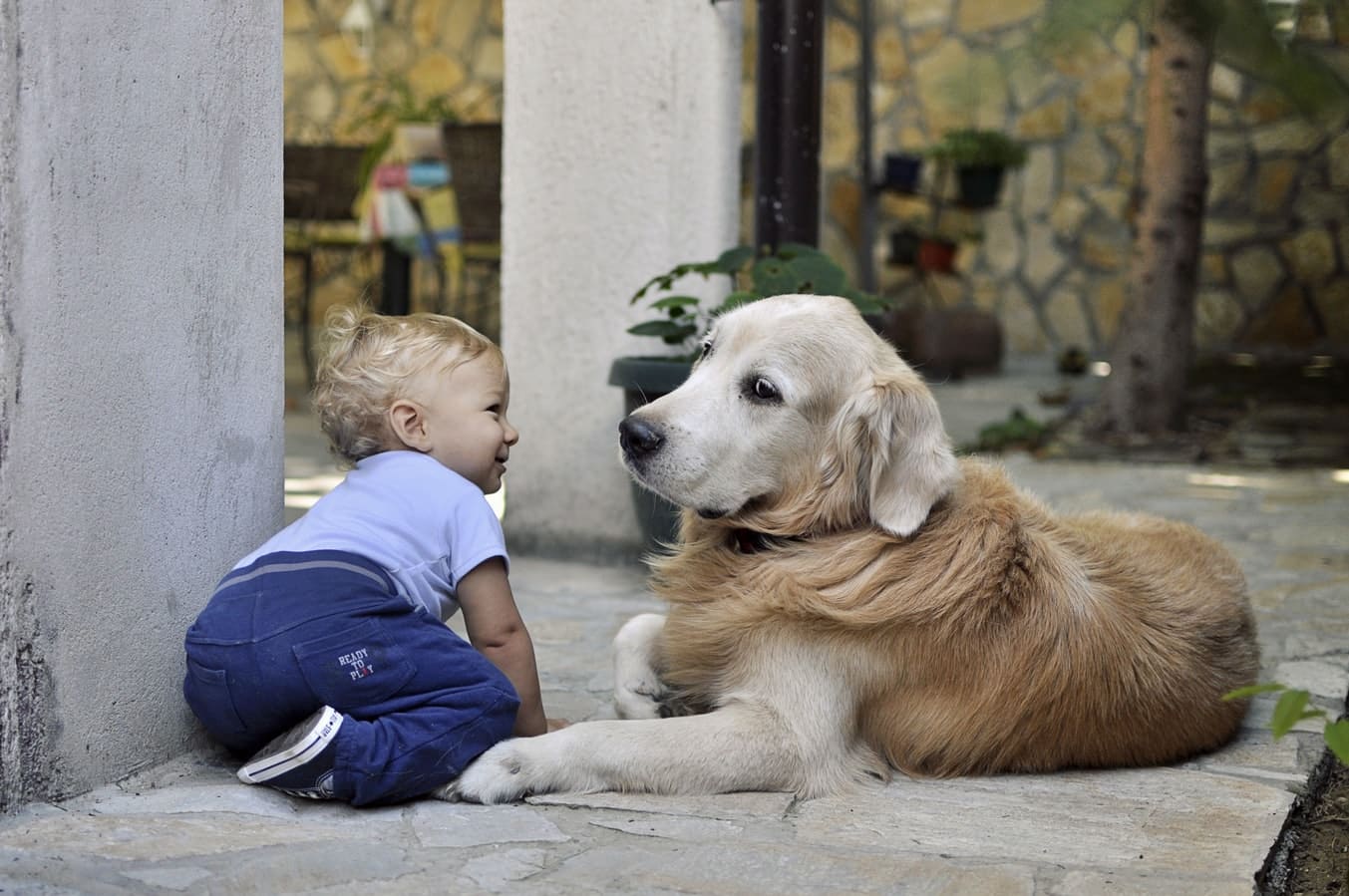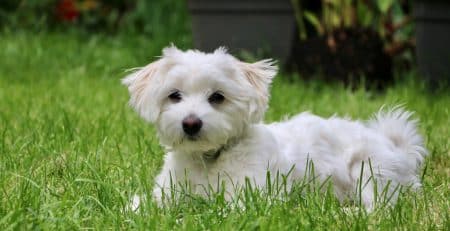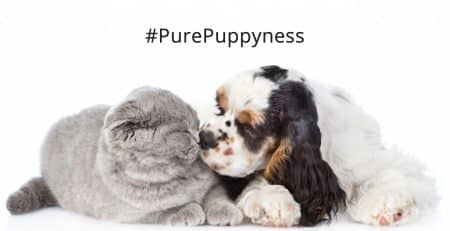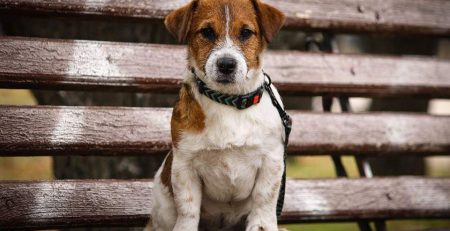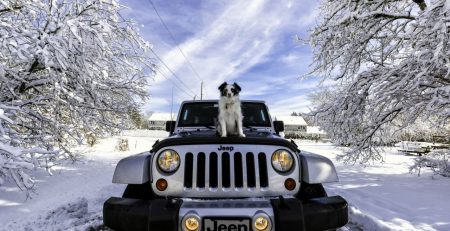6 dog breeds for a family with very young children
The truth is that any dog breed can make a good family dog if properly socialized with young children. However, there are some breeds that are more suitable for the job than others. There are many characteristics that are sought after in a family dog that has to coexist and interact with small children. These are: high pain tolerance; gentle predisposition; a keen interest in the company of humans; low possessive behaviour; and low herding instincts.
The following is a list of dog breeds that are usually good family pets:
American Staffordshire Terrier:
You might be alarmed that this breed made it on the list as a potentially good family pet. Due to sensationalist news propagated by the media, you might associate this breed with aggression and therefore jump to the conclusion that this breed is inherently vicious. People often think that this breed is simply a pit fighting dog or a dog that is only owned by thugs wanting to impress the people around them for all the wrong reasons. However this breed has basked in favourable light for a very long time as a part of a lot of many American families before it has plummeted into the realm of shadiness and rumour. Not so long ago the Amstaff was nicknamed as the “Nanny dog”; this is because in the past these dogs have been entrusted with the care and protection of young children when adults were not around to supervise. In stark contrast to how people feel about this breed today, in the past, this breed was admired for its bravery and reliability.
An Amstaff called Pete the Pup was also part of the famous TV series called “The Little Rascals”.
Boxer:
This breed is also particularly well known for getting along well with kids. The boxer, much like the American Staffordshire Terrier, has a kind temperament and a high pain tolerance. However, Boxers, even those in their senior years, tend to stay a bit young at heart and can usually be a bit rambunctious. This behaviour can sometimes be undesirable around really young children as they can sometimes knock children over resulting in light injuries.
Pharoah hound:
The Pharoah hound, although a hunting dog, is a very good natured dog. Back in the day, Maltese farmers and their families used to consider feeding these hunting dogs the responsibility of their children because of their characteristic reserved, docile natures. Despite not being small dogs, these dogs do not respond well to rough treatment. It is therefore not advised for these dogs to be around toddlers without supervision as toddlers have a tendency to poke and pull anything that piques their curiosity. This could physically hurt and emotionally destabilize these emotionally delicate dogs. These dogs are great for families with children that understand how to handle a dog with a tender touch.
Labrador retriever:
This dog breed needs no introduction; it’s perhaps the most obvious option for most families with young children. These dogs are both robust and very good natured. They are not fastidious and do not take offence when poked and pulled as they relish any kind of attention. Even though these dogs are considered to be high energy dogs, they definitely do have an off switch; they like nothing more than to laze and lounge around the house when they are not outside. Having been bred with a “soft mouth” for retrieving shot game in one piece, these dogs are incredibly good when playing with children.
Newfoundland:
This gentle giant might look big and menacing but rest assured that this dog is anything but vicious. Unfortunately black dogs are not very popular with people of different cultures due to many different superstitious reasons. However, we implore you to look beyond your first impressions and consider this breed of dog as a potential family addition. This breed of dog is very gentle despite its size. Having been bred as a water rescue dog, it will also commonly try to protect its loved ones from drowning when close to or while swimming. Hopefully, its unquenchable enthusiasm for water might also influence and rub off on children, making it easier to get them in the bath tub for a daily scrub.
Golden Retriever:
This dog is perhaps the golden standard of what comes to mind when you envision a dog in the company of your kids. This dog exudes the same wholesome vibe of the guy you wouldn’t mind asking your daughter out for her high school prom. This breed of dog has been further idealized as the perfect family pet by the movie industry in movies such as Homeward Bound and Air Bud. Golden Retrievers are generally well behaved, balanced dogs. They were also bred to have the characteristic “soft mouth” found in some retrievers; this ensures that this breed is able to play as gently as possible with younger family members.
Mutts:
Everyone is well aware that these dogs do not belong to any specific breed. Having said that we feel that it is our responsibility to let people know that these mixed breed dogs still have the potential to be very good pets in families with small, young children. However, if a family decides to adopt a mutt, that family must take several things in consideration. As a general rule, it is best to avoid adopting small, fragile dogs when a family has young children. Small dogs can get hurt very easily when toddlers handle these small dogs roughly. Given that a dog will often react aggressively when in pain, a young child will probably end up getting bitten if left unsupervised in the company of a new dog. It is a good idea to adopt an adult dog with a proven track record that proves that it is good to be around young children. It is also a good idea to adopt an adult, emotionally developed dog that shows no aversion or aggression towards children. One must also keep in mind that dogs that have been stray for a significant period of time sometimes display possessive behaviour or food aggression. Make sure that the dog you’re adopting has no such issues as this coupled with the inquisitive nature of young children can be an accident waiting to happen.

